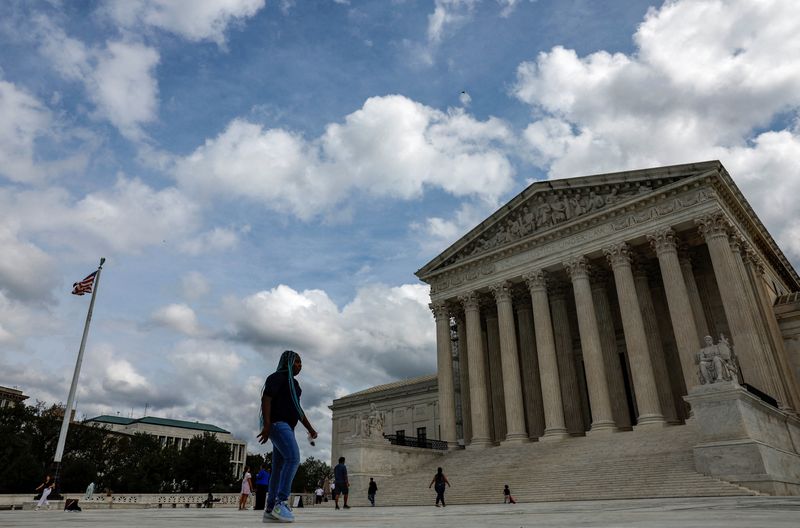By Andrew Chung
WASHINGTON (Reuters) – The U.S. Supreme Court on Tuesday threw out a lower court’s decision that had let a Florida woman pursue a lawsuit accusing a Maine hotel of omitting details on its reservation website about accessibility features for people with disabilities even though she had no intention of booking a room there.
The justices unanimously set aside the lower court’s decision reviving a lawsuit by Deborah Laufer, who is visually impaired and uses a wheelchair, against Acheson Hotels LLC. The justices determined the case was moot and dismissed it.
Laufer accused the company of violating a federal rule under the Americans with Disabilities Act, a landmark 1990 civil rights law, requiring reservation systems to include accessibility information.
Laufer is a self-described “tester” of hotel compliance with the ADA. The law protects people with disabilities from discrimination in public accommodations such as hotels, as well as areas including employment, transportation, communications and access to public programs and services.
To have proper legal standing to sue in federal court, plaintiffs typically must show they have been concretely harmed in a way that may entitle them to a court-ordered remedy. At issue before the Supreme Court was whether Laufer had such standing.
During oral arguments in the case in October, some justices – both conservative and liberal – seemed skeptical that Laufer had standing to sue. The court has a 6-3 conservative majority.
President Joe Biden’s administration agreed with the hotel in the case that Laufer did not have standing in the case to sue.
The case was also unusual in that both sides had said the underlying dispute was moot. Laufer dropped her lawsuit as well as others she filed after one of her attorneys in a separate case was disciplined by a lower court for ethics violations.
In addition, the hotel at issue in the case, Coast Village Inn and Cottages in Wells, Maine, has since modified its website to include accessibility information. The inn was operated by Acheson at the time of the lawsuit but it is now under different ownership.
Writing for the Supreme Court on Tuesday, conservative Justice Amy Coney Barrett said it dismissed Laufer’s case given that she voluntarily dismissed her cases, but emphasized that lower courts are still split over the legal issue.
“We might exercise our discretion differently in a future case,” Barrett wrote.
Laufer sued in 2020, claiming that the hotel’s omissions violated a 2010 Justice Department regulation requiring reservation systems to include accessibility information.
A federal judge in Maine threw out the lawsuit, finding Laufer did not have standing. The Boston-based 1st U.S. Circuit Court of Appeals last year revived the case.
Laufer has filed more than 600 similar lawsuits after searching for websites of hotels that did not provide enough information about whether their rooms were accessible under the ADA.
Business groups have said ADA “testers” have fueled an explosion of lawsuits against small businesses accused of discriminating against disabled people.
(Reporting by Andrew Chung; Editing by Will Dunham)
